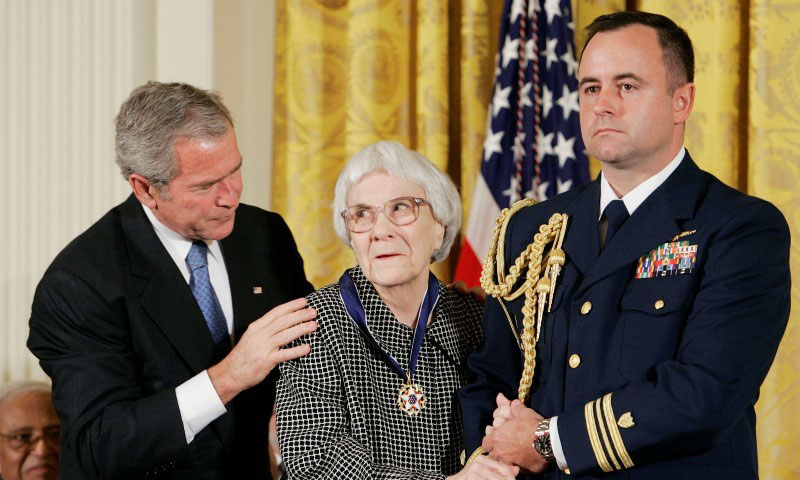
RIP Harper Lee: The Mockingbird Scribe’s Association Legacy
Iconic author Harper Lee, who died Friday, may be best known for a single book—and its sequel, released last year—but she created a long legacy, one that's been embraced by two prominent associations.
Harper Lee, whose iconic book gave her standing in the literary world, the heart of the civil-rights debate, and popular culture, won’t be soon forgotten by many readers.
The author, who died Friday at the age of 89, is best known for her 1960 tome To Kill a Mockingbird, which highlighted racial injustice in the Depression-era South and introduced the world to the legal mind of Atticus Finch. It became one of the most famous books of the 20th century, as well as one of its most controversial.
And that controversy melted into the present day, as Lee’s Go Set a Watchman, released last year after a decades-long delay, recast Finch as someone far removed from the civil rights icon of Mockingbird and raised debate over whether the book’s release was something the reclusive Lee actually wanted.
The shadow of Lee’s career—felt in bookstores and bookshelves, in libraries, on film, and even in the courtroom—is one shared by a handful of prominent associations.
The shadow of Lee’s career—felt in bookstores and bookshelves, in libraries, on film, and even in the courtroom—is one shared by a handful of prominent associations. Among them are:
The American Library Association (ALA) frequently cites the importance of Lee’s To Kill a Mockingbird as a work of literature and a target of controversy. The reason? Mockingbird is a mainstay of ALA’s list of frequently challenged books, a list that drives the association’s Banned Books Week each fall. Mockingbird most recently appeared in the top 10 in 2011, sharing the list with modern classics like The Hunger Games trilogy and The Absolutely True Diary of a Part-Time Indian. Likewise, Mockingbird shares a reputation for challenges with The Great Gatsby, The Catcher in the Rye, and The Grapes of Wrath. While Lee rarely spoke in public, she was known to speak up about censorship in schools. She is remembered for sending a letter to the editor to The News Leader in Staunton, Virginia, in response to a school board decision to ban her book. The 1966 board decision “makes me wonder if any of its members can read,” she wrote.
The American Bar Association (ABA), meanwhile, has a completely different interest in Mockingbird. The book is perhaps the most famous courtroom-based book of the 20th century, leading the association to help create an award named “The Harper Lee Prize for Legal Fiction.” The ABA Journal awards the prize each year with the help of the University of Alabama School of Law. The award was launched in 2010 with the help of then-U.S. Attorney General Eric Holder. Its creation was timed to commemorate the 50th anniversary of the book’s release. Popular legal fiction author John Grisham has won the award twice in its five-year history, but if you have written a book that might be worthy of the award, nominations for this year’s prize are being accepted now through March 31.
While Lee has been lost to history, her legacy lives on. That legacy includes a nonprofit organization, which she personally founded last year to help fund a theatrical version of the play that has been put on in her hometown of Monroeville, Alabama, for more than a quarter century.
Harper Lee, center, receives the Presidential Medal of Freedom from President George W. Bush in a 2007 ceremony. (Larry Downing/Reuters)






Comments